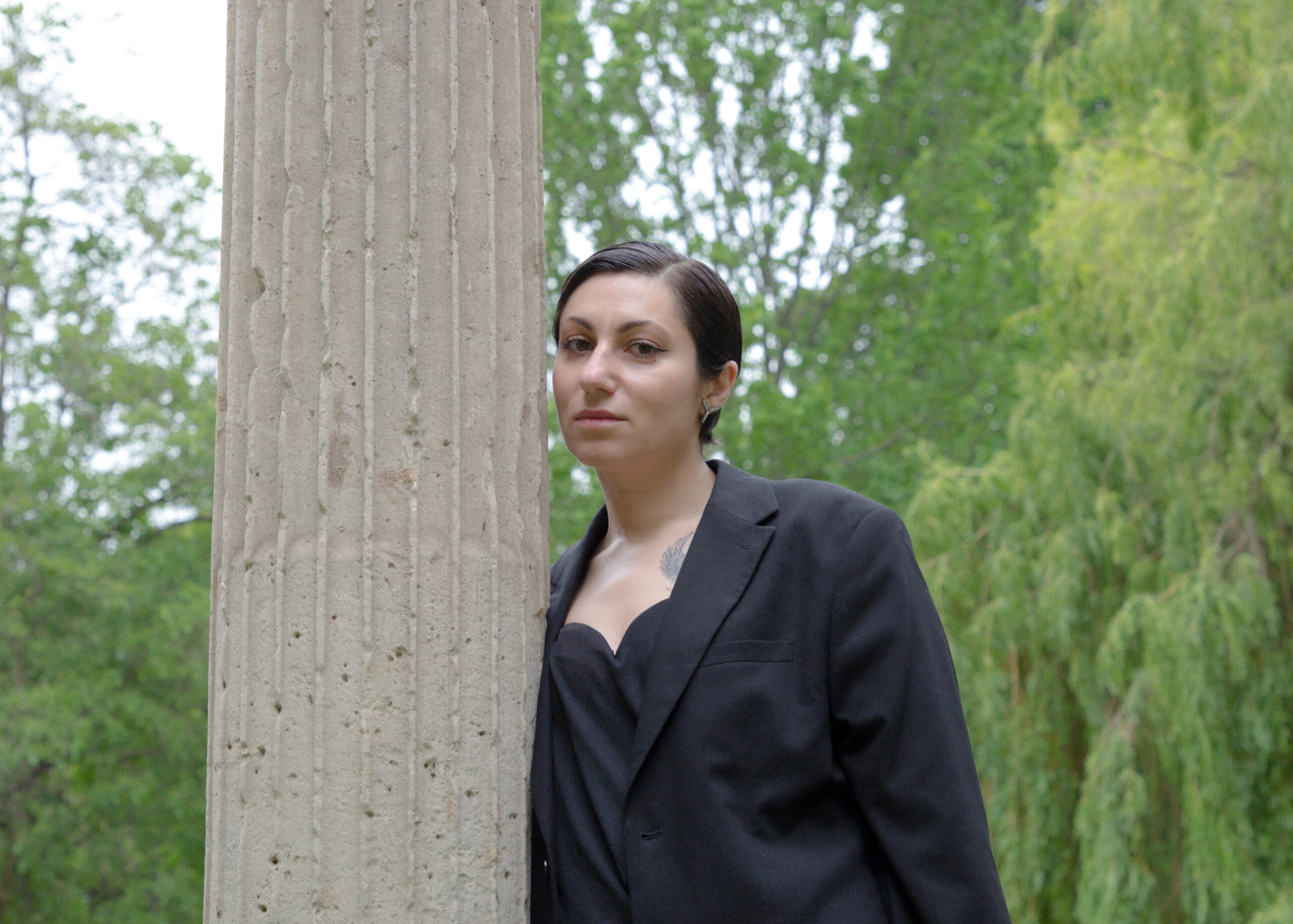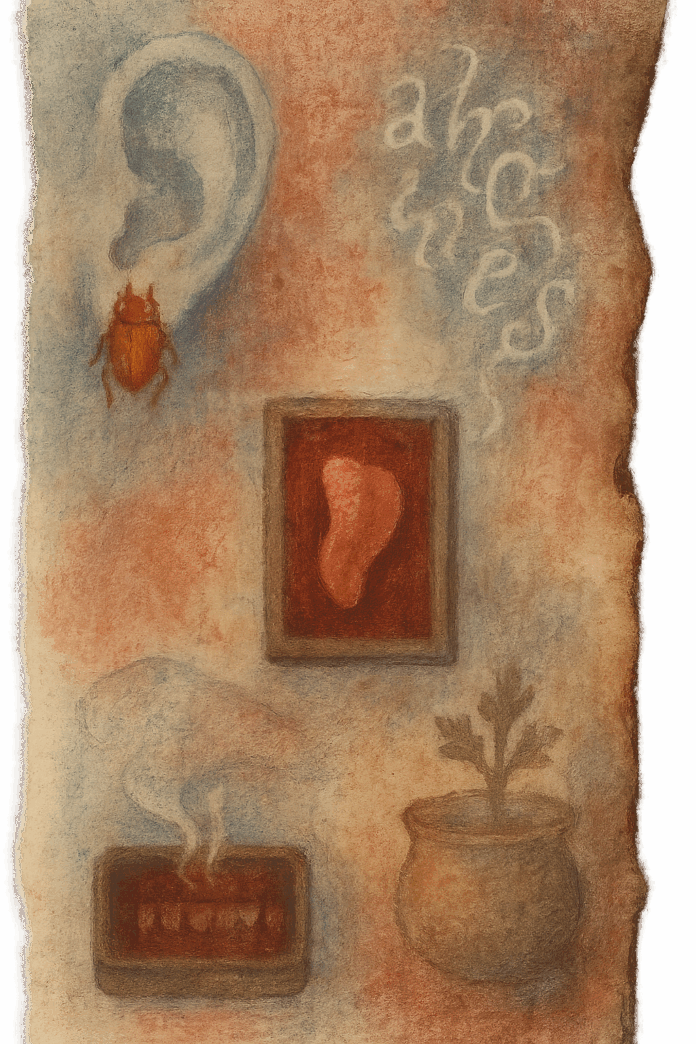In Uses of Madness: Sonnets, Moskovich exercises the sonnet form and its historical variations towards themes of sanity, sequence, and disquiet.
**
TONGUE
A tongue was planted
in my mouth,
then candid
a growling in the house,
patted flat
two-handed rote,
a love-bound pact,
ring of throat ─
that dog, long-dead,
and dead-wrong,
bowing its head
like a swan ─
a lick of youth,
a kiss, a woof.
EARLOBE
I.
Violets
for joint pain
and insomnia, sane
stylus,
five count,
garden beetle,
heat-beaded
doubt.
Mama’s boy,
martial boy
of mice and morals,
cynic soil,
Solomon,
yard quarrels.
II.
Indoors,
stay child ─
door chimes,
dirty pores,
ants in a water bowl,
my parsley son,
dipped twelve times, none
but the parole ─
Scratch-pan
zealot,
angel’s earlobe,
shoulder tan,
the nose ─ a carrot,
the soul ─ screeching ─ orbs.
III.
Let live scarabs,
but you ─ never too late
to immolate
the body or the ballad
embodied,
something choral,
dorsal music, cure-all
at the feet.
Brief
summer,
profane salute,
save
mama
your one and only suit.
WORDS
Words speak words,
offender,
syntax at the center,
a sentence towards
terms
unknown
grisly alone,
firmly from ─
─ from every day, I pinch what’s dayish,
wounds can be withstood, just not a blemish.
I don’t need hope
to hope,
to hope
words probe.
****
A note from the poet: “Uses of Madness: Sonnets, is built around the themes of moral and spiritual sanity and disquiet. I experiment with historical variations of the Sonnet form─Ttongue” is a Shakespearean Sonnet, “Earlobe” is a Petrarchan Sonnet series, and “Words” is a French sonnet. I approach these forms with both traditional and irreverent breath, to make use of the thing that makes all seem to have no use: madness.”

Yelena Moskovich is a Ukrainian-born American and French writer, author of The Natashas, Virtuoso, A Door Behind A Door, and Nadezhda in the Dark. Her work has been long-listed for the Dylan Thomas Prize, awarded the Galley Beggar Short Story Prize, and featured in The Guardian, The Telegraph, and The Irish Times Books of the Year.




